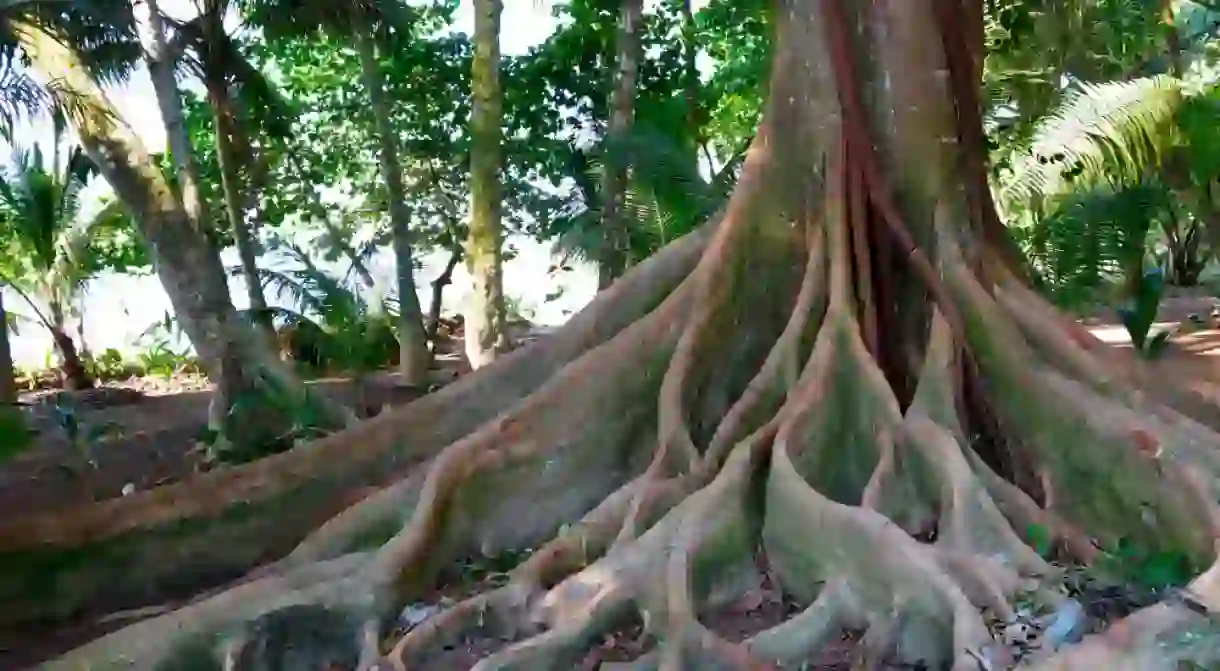Meet the Heroes of Costa Rica Leading the Way for Sustainable Tourism

Costa Rica is a country that is widely recognized for its ecotourism and sustainable practices. Twenty-five percent of Costa Rica is protected as either a national park, wildlife refuge, or reserve. People come from all over the globe to witness the incredible beauty and biodiversity of this small tropical paradise. Tourism and especially ecotourism is a major industry and driving economic force that sustains a large proportion of the population. While not everyone, both on a government and individual level, is environmentally-conscious, a significant number of people in Costa Rica realize the importance and value of protecting our Mother Earth.

Costa Rica was named the second more sustainable country in the world by the World Energy Council. The country uses 99.2% renewable energy, 78% from hydroelectric and 18% by geothermal. Costa Rica is also goal set on being carbon neutral by 2020. There are several government and private organizations, as well as role model programs and communities that are playing a major part in promoting and enforcing environmentally-friendly tourism throughout the country.
Certification for Sustainable Tourism
“The development of sustainable tourism must be seen as the balanced interaction between the use of our natural and cultural resources, the improvement of the quality of life among the local communities, and the economic success of the industry, which also contributes to national development. Sustainable tourism is not only a response to demand, but also an imperative condition to successfully compete now and in the future” (CST, 1997).
The goal of CST is to promote sustainable tourism practices across all sectors of the tourism industry in Costa Rica, from accommodations, transportation, dining, and tours. Through their certification program, they hope to instill a bit of competition between businesses (who can be the most sustainable) and inspire travelers to choose only certified businesses, especially for tours and accommodations.

Blue Flag Ecology Program
The Blue Flag Ecology Program is divided into ten categories: beaches, communities, neutral weather, education centers, community health, micro drainage basin, sustainable homes, special events, protected natural spaces, and climate change. The program was originally started to help strengthen public health and tourism activities. It is aimed at educating and inspiring people, businesses, communities, and organization to care about the environment and carry out environmentally-friendly practices. Receiving a blue flag is a very big deal. The idea of being awarded a prestigious blue flag has prompted many communities to work together in an effort to take care of their local environment.

National Biodiversity Institute
The National Biodiversity Institute (INBio) is a private non-profit organization and research program. INBio focuses on conservation, education, and biological inventories, among other environment-related areas. Through research, observation, and data collection, INBio gathers valuable information regarding biodiversity in Costa Rica and about the different ecosystems and protected areas. This information is then used in conservation and protection efforts. The National System of Conservation Areas (SINAC) has partnered up with INBio to help protect the environment while promoting ecotourism. INBio also helps to promote sustainable practices and conservation through educational programs for the community and visitors.
Sustainable Nosara
Sustainable Nosara is an organization that was developed to help bring together the community and community organizations in an effort to promote sustainable practices and tourism in Nosara. The organization now works together with the Nosara Civic Association, the Chamber of Tourism, and the Recycling Association. The organization has helped put together many different initiatives and events to protect and preserve and clean up the beaches, rivers, and forests. Efforts have also been made to build more sustainable homes (Sustainable Home project in Nosara), encourage businesses to stop using single-use plastic and styrofoam, and to put together workshops and educational programs in the local schools, churches, and community centers. The community of Nosara is also subsequently acting as a wonderful role model for other coastal and inland communities in Costa Rica.

Punta Mona
Punta Mona is a community and center for regenerative design and botanical studies on the Caribbean coast. Through permaculture workshops and courses, medicinal plant workshops, and volunteers programs, visitors can spend time in this beautiful and totally off-the-grid community while learning how to better take care of our planet. This inspiring place is a perfect demonstration as to how we can live in harmony with nature instead of destroying it. It is through this experience, whether for a day or for a month, that sustainable tourism and sustainable life practices can be learned and brought home to share in our own communities. Our planet needs all of us to participate in protecting and conserving her now more than ever.
Rancho Mastatal
Rancho Mastatal is a sustainability education center, permaculture farm, and community that was established in 2001 in the rural town of Mastatal on a spectacular 300 acre piece of land that has waterfalls, beautiful rivers, swimming holes, hiking trails, lush greenery and ancient trees, and an abundance of animal neighbors. Rancho Mastatal is teaching both locals and visitors how to live, build, and eat more sustainably. They lead by example and also through a variety of exceptional courses. Education is a very powerful tool for change and learning in such a pristine and inspiring environment is even more impactful. The way of life at Rancho Mastatal is one that we can all learn from.













